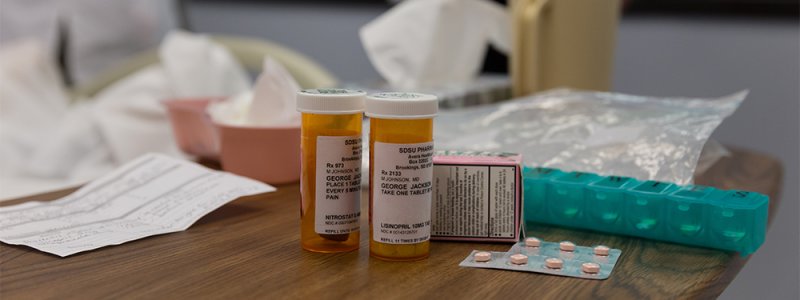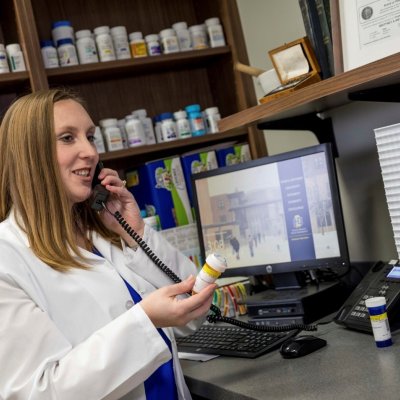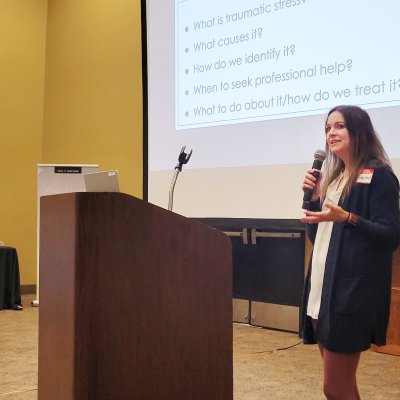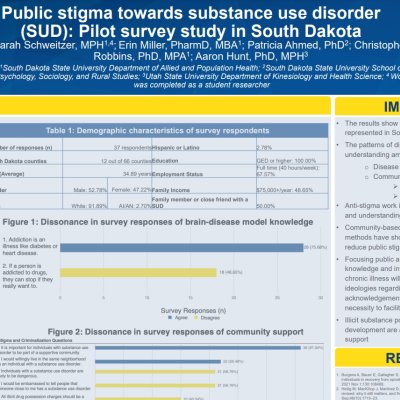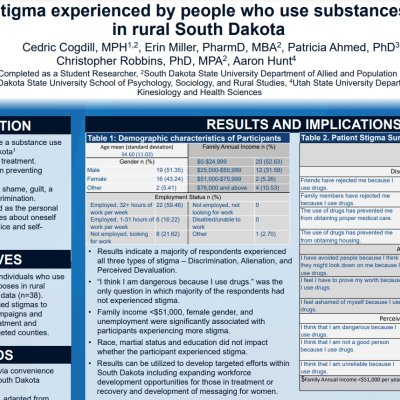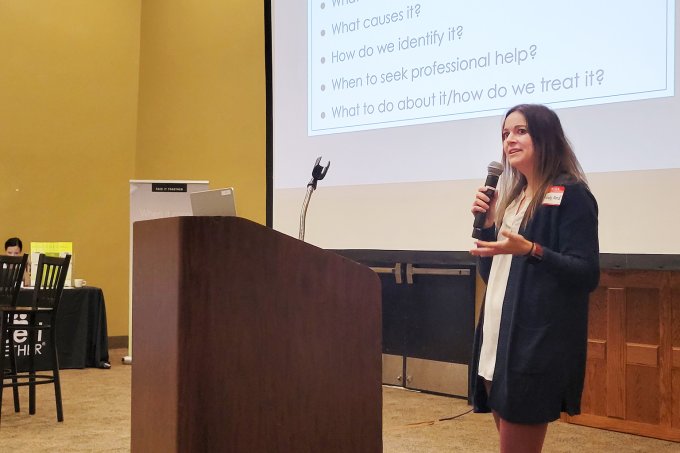About START-SD

START-SD is a federal program funded by the Health Resources and Services Administration (HRSA) through four Rural Communities Opioid Response Program (RCORP) grants to complete work to increase access to and effectiveness of prevention, treatment and recovery services for substance use disorders in South Dakota.
Following the initial planning grant, START-SD engaged in three separated grand-funded programs: Opioid Response, Psychostimulant Response, and Overdose Response. Each of those program concluded in September 2024. At the same time, the START-SD team began work on START-SD-Impact, a four-year program focused on providing support for individuals transitioning out of SD prison systems and their love ones through peer support programs, workforce development, and SUD treatment, prevention, and recovery.
START-SD-Impact
START-SD-Impact will provide substance use disorder (SUD) treatment and support services to adults aged 18-54 in Hughes, Bon Homme, Yankton and Codington counties, focusing on inmates transitioning out of the South Dakota’s Women Prison, the Mike Durfee State Prison, and the Yankton Minimum Security Unit, individuals who are justice-impacted, and the families and loved-ones of both. The prevalence of SUD is a growing problem throughout the rural state of South Dakota, precipitating a need for expanded and newly established treatment, recovery, and prevention services. We intend to decrease rates of post-release overdose, decrease rates of recidivism, and provide justice-involved individuals who have SUD with the resources they need to successfully reenter their communities and recover from SUD/OUD.
START-SD-Impact has seven key objectives:
- Expanding MAT/MOUD, Counseling and Behavioral Therapy
- Establishing Peer Coaching
- Expanding Reentry Programming and Services
- Developing the Workforce through Training and Education
- Providing Post-Reentry Support
- Supporting Loved Ones and Growing Community
- Increasing Community Engagement, Awareness and Anti-Stigma
To complete this work, the START-SD team is partnering with the South Dakota Department of Corrections,Face-IT-TOGETHER, St. Dysmas of South Dakota and Brothers and Sisters Behind Bars.
START-SD Projects Timeline

The START-SD Planning Grant was a Rural Communities Opioid Response Program (RCORP) planning grant, awarded to South Dakota State University by the Health Resources and Services Administration (HRSA). Through the planning grant, the START-SD team successfully developed a multi-sector care network to optimize access to care for rural patients with opioid use disorder in South Dakota, with a focus on Yankton, Lyman, Roberts and Hughes Counties.
START-SD Opioid Support was a Rural Communities Opioid Response Program (RCORP) implementation grant, awarded to South Dakota State University by the Health Resources and Services Administration (HRSA). Through the Opioid Support work, the START-SD team built upon the work completed through the planning grant to optimize access to prevention, treatment and recovery services in rural areas to patients and families affected by substance use disorder, with a focus on opioid use disorders. Barriers this work addressed included stigma surrounding substance use disorder, lack of access to providers offering medication assisted treatment and social determinants of health. Initial funding was secured through Aug. 31, 2023, however the project period was extended to Aug. 31, 2024 to most effectively utilize resources.
Final report for START-SD Opioid Support coming soon.
START-SD-PSS (Psychostimulant Support) Support was a Rural Communities Opioid Response Program (RCORP) implementation grant, awarded to South Dakota State University by the Health Resources and Services Administration (HRSA). Through the Psychostimulant Support work, the START-SD team built upon the work completed through the planning grant and the Opioid Support work to optimize access to prevention, treatment, and recovery services in rural areas to patients and families affected by psychostimulant use disorder. Facilitators to completion of treatment and maintaining recovery included incentive programs for attending appointments and having negative drug screens, exercise and peer coaching support. Barriers to implementing these facilitators included current lack of funding for incentives and exercise programs, lack of culturally appropriate programs and training for peer coaching and avoidance of treatment due to stigma.
Final Report for START-SD-PSS coming soon.
START-SD-OR (Overdose Response) was a Rural Communities Opioid Response Program (RCORP) implementation grant, awarded to South Dakota State University by the Health Resources and Services Administration (HRSA). Through the Overdose Response work, the START-SD team built upon the work completed through the planning grant, the Opioid Support work, and the Psychostimulant Support work to reduce morbidity and mortality associated with overdoses related to substance use among adults aged 18-54 through promotion of harm reduction strategies, education and training with healthcare facilities to improve treatment and increasing access to treatment and recovery services through education, training and placement of peer coaches.
Final report for START-SD-OR coming soon.
START-SD-Impact will provide substance use disorder (SUD) treatment and support services to adults aged 18-54 in Hughes, Bon Homme, Yankton, and Codington counties, focusing on inmates transitioning out of the South Dakota’s Women Prison, the Mike Durfee State Prison, and the Yankton Minimum Security Unit, individuals who are justice-impacted, and the families and loved-ones of both. The prevalence of SUD is a growing problem throughout the rural state of South Dakota, precipitating a need for expanded and newly established treatment, recovery, and prevention services. We intend to decrease rates of post-release overdose, decrease rates of recidivism, and provide justice-involved individuals who have SUD with the resources they need to successfully reenter their communities and recover from SUD/OUD.
Learn more
Resources for those in Brookings, Brown, Roberts, Hughes and Codington Counties:
Fighting stigma and understanding addiction
Many people don’t realize that drug addiction is a complex disease that can affect anyone. To learn more, visit:
Resources for those struggling with substance use disorder
If you or someone you know is struggling with substance use disorder, there are resources to receive help. Visit the South Dakota helpline center website or call the hotline at 1-800-920-4343
START-SD News
Project Manuscripts
Project Posters
Funding Statement
This project is supported by the Health Resources and Services Administration (HRSA) of the U.S. Department of Health and Human Services (HHS) as part of a financial assistance award totaling $1,500,000 with 100% funded by HRSA/HHS. The contents are those of the author(s) and do not necessarily represent the official views of, nor an endorsement, by HRSA/HHS or the U.S. government. More Information
Program Director

Erin Miller
Interim Center Director, Community Practice Innovation Center (CPIC), Assistant Professor, Department of Allied and Population Health
Department of Allied and Population Health
Community Practice Innovation Center
College of Pharmacy and Allied Health Professions
Faculty
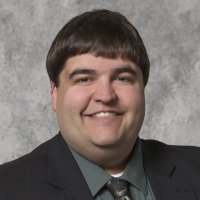
Jeremy Daniel
Associate Professor
College of Pharmacy and Allied Health Professions
Department of Pharmacy Practice
Community Practice Innovation Center

Patricia Ahmed
Assistant Professor
School of Psychology, Sociology and Rural Studies
Community Practice Innovation Center
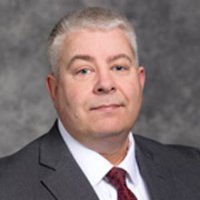
Christopher Robbins
Assistant Professor
Department of Allied and Population Health
Community Practice Innovation Center
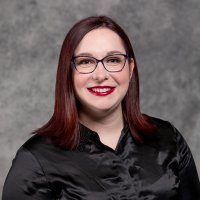
Stephanie Hanson
Assistant Professor
Department of Allied and Population Health
Community Practice Innovation Center
Support Team

Irene Arango Gomez
Community Care Coordinator
Department of Allied and Population Health
College of Pharmacy and Allied Health Professions
Community Practice Innovation Center
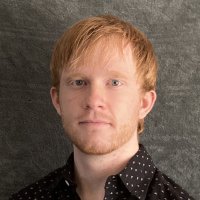
Jacob Ford
Research Communications Coordinator
College of Pharmacy and Allied Health Professions
Community Practice Innovation Center


